Gresa Shala
Hierarchical Transformers are Efficient Meta-Reinforcement Learners
Feb 09, 2024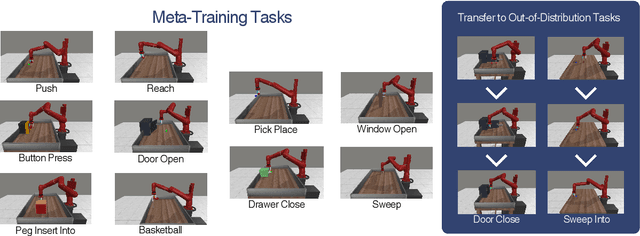

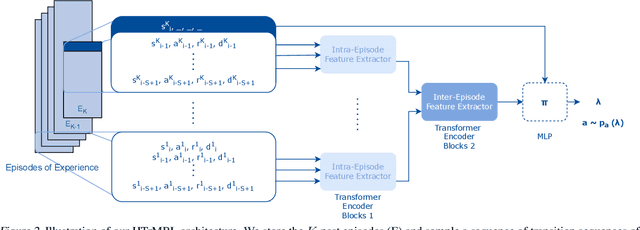
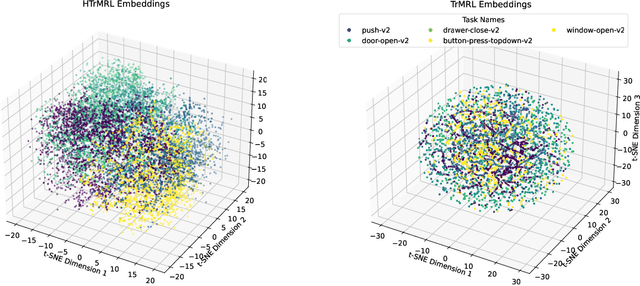
Abstract:We introduce Hierarchical Transformers for Meta-Reinforcement Learning (HTrMRL), a powerful online meta-reinforcement learning approach. HTrMRL aims to address the challenge of enabling reinforcement learning agents to perform effectively in previously unseen tasks. We demonstrate how past episodes serve as a rich source of information, which our model effectively distills and applies to new contexts. Our learned algorithm is capable of outperforming the previous state-of-the-art and provides more efficient meta-training while significantly improving generalization capabilities. Experimental results, obtained across various simulated tasks of the Meta-World Benchmark, indicate a significant improvement in learning efficiency and adaptability compared to the state-of-the-art on a variety of tasks. Our approach not only enhances the agent's ability to generalize from limited data but also paves the way for more robust and versatile AI systems.
Automated Dynamic Algorithm Configuration
May 27, 2022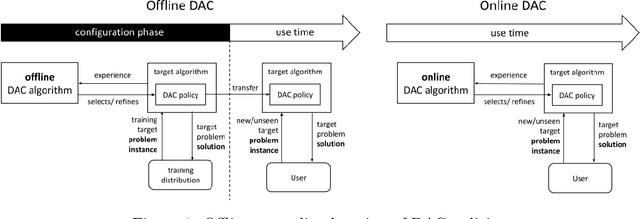

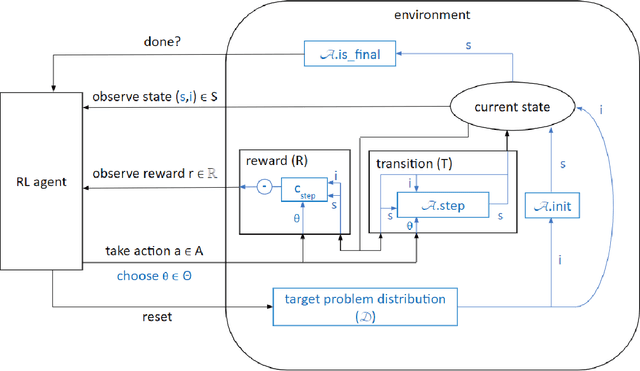

Abstract:The performance of an algorithm often critically depends on its parameter configuration. While a variety of automated algorithm configuration methods have been proposed to relieve users from the tedious and error-prone task of manually tuning parameters, there is still a lot of untapped potential as the learned configuration is static, i.e., parameter settings remain fixed throughout the run. However, it has been shown that some algorithm parameters are best adjusted dynamically during execution, e.g., to adapt to the current part of the optimization landscape. Thus far, this is most commonly achieved through hand-crafted heuristics. A promising recent alternative is to automatically learn such dynamic parameter adaptation policies from data. In this article, we give the first comprehensive account of this new field of automated dynamic algorithm configuration (DAC), present a series of recent advances, and provide a solid foundation for future research in this field. Specifically, we (i) situate DAC in the broader historical context of AI research; (ii) formalize DAC as a computational problem; (iii) identify the methods used in prior-art to tackle this problem; (iv) conduct empirical case studies for using DAC in evolutionary optimization, AI planning, and machine learning.
Squirrel: A Switching Hyperparameter Optimizer
Dec 16, 2020Abstract:In this short note, we describe our submission to the NeurIPS 2020 BBO challenge. Motivated by the fact that different optimizers work well on different problems, our approach switches between different optimizers. Since the team names on the competition's leaderboard were randomly generated "alliteration nicknames", consisting of an adjective and an animal with the same initial letter, we called our approach the Switching Squirrel, or here, short, Squirrel.
 Add to Chrome
Add to Chrome Add to Firefox
Add to Firefox Add to Edge
Add to Edge